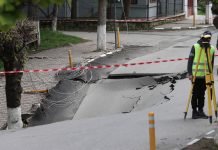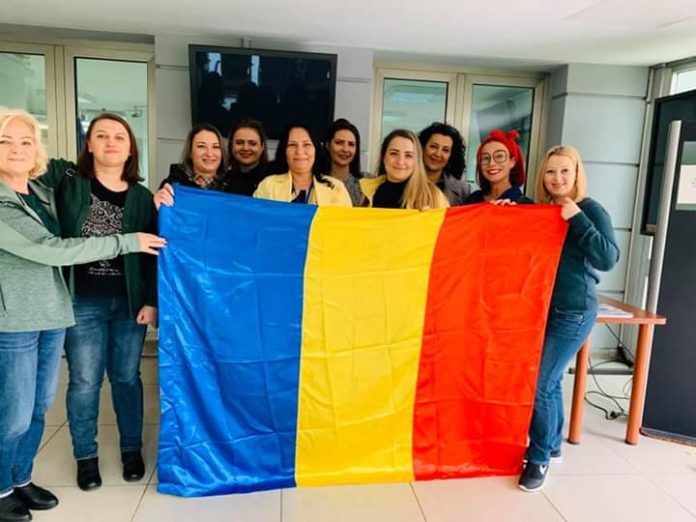Romania’s former Prime Minister Viorica Dancila called them “astia,” a disparaging term for “them,” while President Klaus Iohannis says they are a priority. However you describe Romania’s overseas voters, they play a key role in the country’s elections and democratic process.
Expat voters or the diaspora have also become a symbol of democratic progress made in Romania as it marks thirty years since the end of communism.
After Romania joined the European Union, millions moved abroad to find better-paying jobs. But many still felt closely connected to Romania and wanted a say in its political future. They wanted to the opportunity to express their preferences in referendums and presidential elections.
Romania first began allowing its citizens to vote in 1990 after the collapse of communism, but the breaking point came in the runoff of the 2014 presidential election between Social Democrat Victor Ponta and Liberal Klaus Iohannis.
Protests and fights broke out at embassies where people were voting after people said they had been unable cast their ballots. Huge queues formed in London, Chisinau, Vienna, Madrid, Rome and Paris and elsewhere. Later, angry voters staged spontaneous protests in front of the polling stations in Paris, Vienna, London, Madrid, New York and Strasbourg chanting “Plagiarized vote!” and „We want to vote!”
In Paris, Vienna, London and Turin, protests escalated and people stormed embassies and consulates, requiring the intervention of law enforcement officials.
German politician Gunther Krichbaum claimed the situation wasn’t a case of poor organization by the then-ruling Social Democrats “but a wilful hindrance of the free expression of the voters,” as Romanians abroad tend not to vote with center-right parties.
Although Ponta was considered the clear favorite, Iohannis eventually won the runoff, which energized voters abroad who traditionally shun the Social Democrats and choose candidates who are considered pro-Western.
Two foreign ministers were forced to resign and in July this year, in a sign of the political pressure, Parliament passed a law that allows for widespread voting abroad. Romania provides 865 polling centers around the world, almost triple the amount in 2014. Voters can vote over three days.
In Italy, where many Romanians have moved for work, there are 142 polling stations. Germany has 79 polling centers, France, 50 and Romanians in the UK can vote at any of 72 places.
In the first round of voting in the presidential election on Nov. 10, a record 675,000 voters cast their ballots. Their preferences were different to the domestic vote.
Iohannis scored best with 52.8%, while his final score after all votes were counted at home and abroad was about 37%. Abroad, Dancila came fifth with just 2.7%, far lower than her final score of about 22%. (She has apologized for calling them “astia.”)
The reason for high voter participation is because Romanians want to play a part in the political process and some want to return, analysts say. It’s estimated there are between 3 and 5 million Romanians abroad.
A July report by the Organization for Economic Cooperation and Development OECD says, the Romanian diaspora is the fifth largest in the world, with 3.6 million Romanians living outside the country and about 19.5 million at home.
External voting has become more relevant in many countries, not just Romania. It derives from the increase in the number of democracies after the collapse of communism. It has also become more significant in the face of increasing migration either due to economic reasons or conflict, according to a 2007 book, Voting from Abroad.
Romania is one of 115 countries, more than half of worlds’ democracies allow external voting, and one of 41 countries in Europe allow external voting, the book says. Others ban it, such as Armenia which considers its citizens who live abroad should not have a say in the political process.
The point of external voting is to increase political participation and thereby contribute to the legitimacy and accountability of democratic governments.
The 2004 elections in Afghanistan saw more than 800,000 or 10% of the total electorate made up of external electors in Pakistan and Iran, due in part to extensive voter education campaigns and great interest in the country’s first-ever democratic elections.
Other countries, such as Colombia have made provisions for citizens who live out of the country. In the 2002 Senate elections, 365 polling stations abroad were set up.
Romania has more than double that number of polling stations. After three days of voting, a record number, more than 900,000 had voted. Italy, UK, Germany and Spain registered the most votes.
This time, there have been no protests or complaints that voting is being obstructed. Whatever the result in the presidential election, Romania’s democracy has made progress.




















